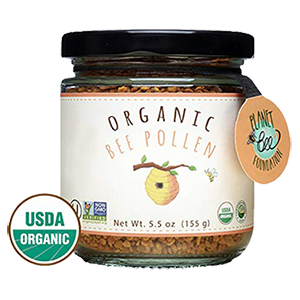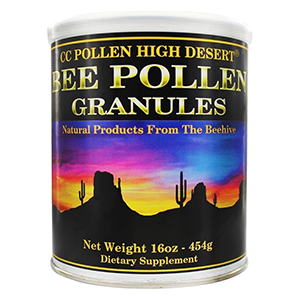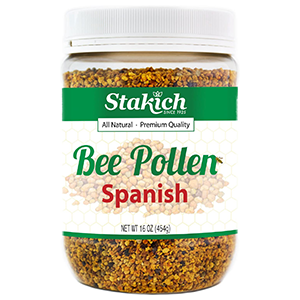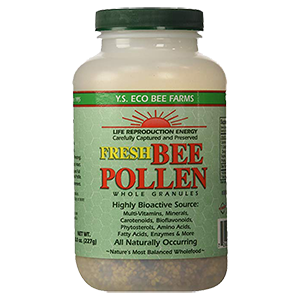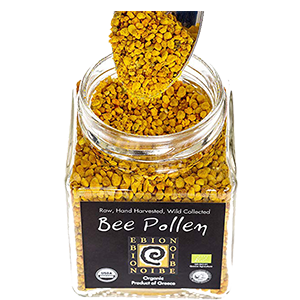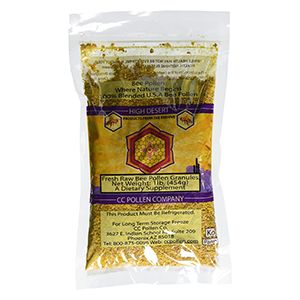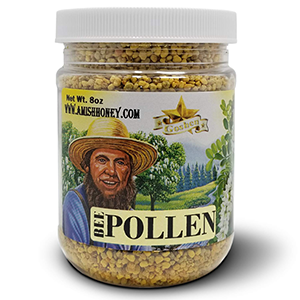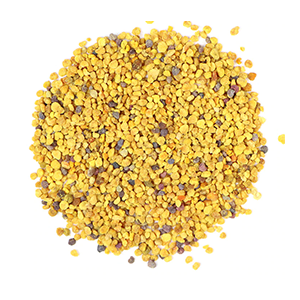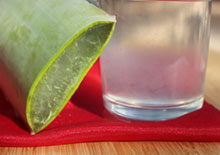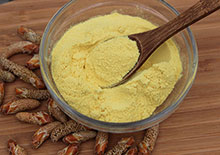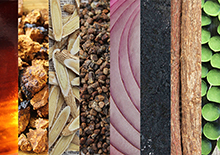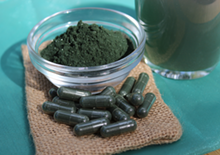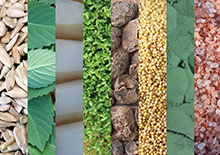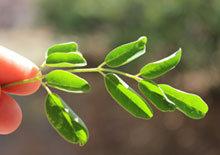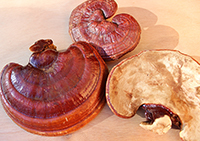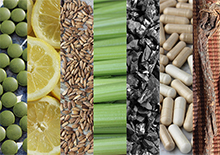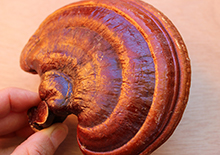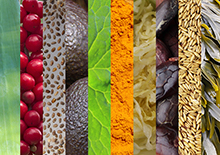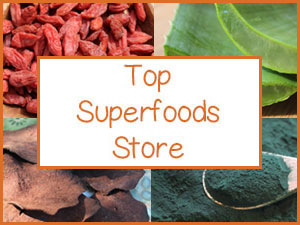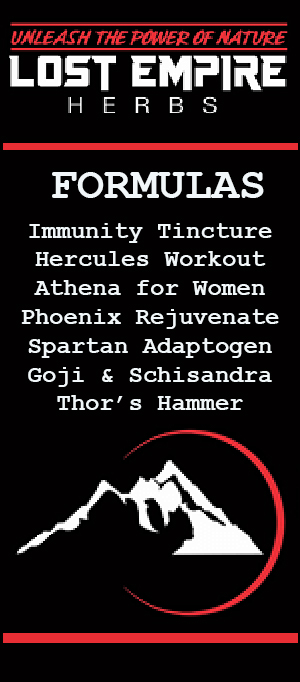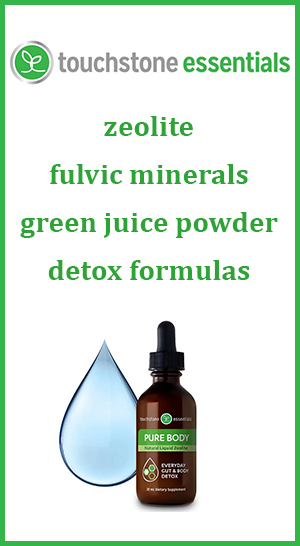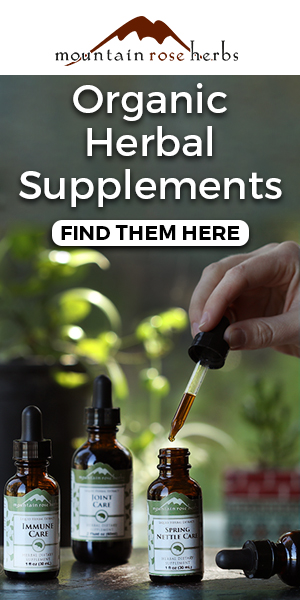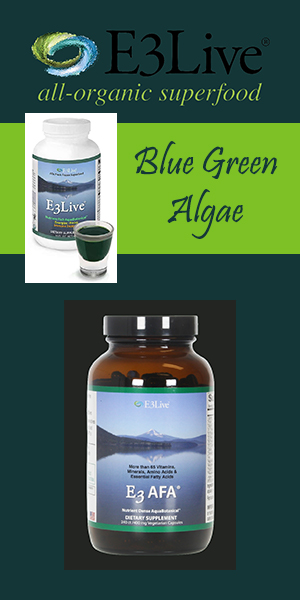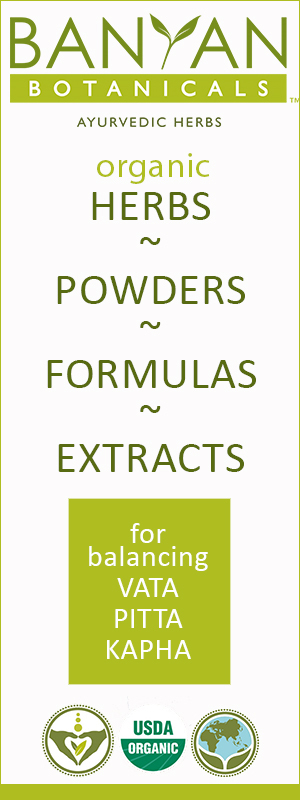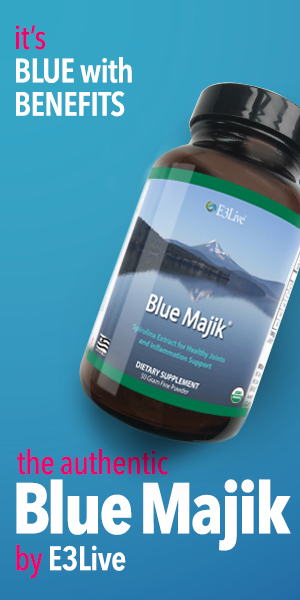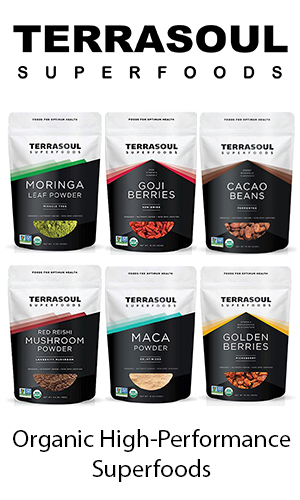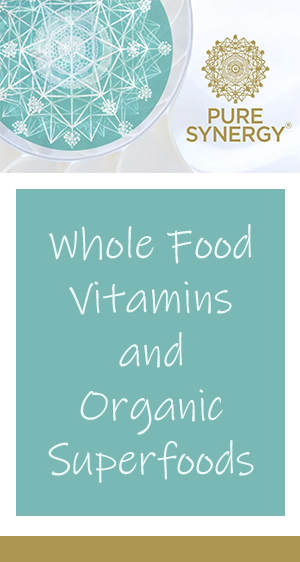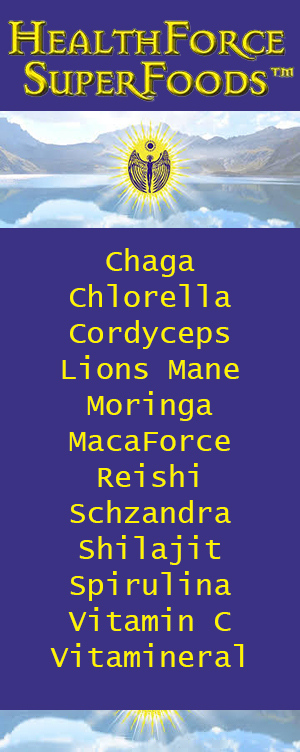- Home
- Top Superfoods
- What is Bee Pollen Good For
What is Bee Pollen Good For? And Not Good For?
Intro | Nutritional Profile | List of Nutrients | About Products | Who NOT Good For? | Survival Food | Precautions | Shop
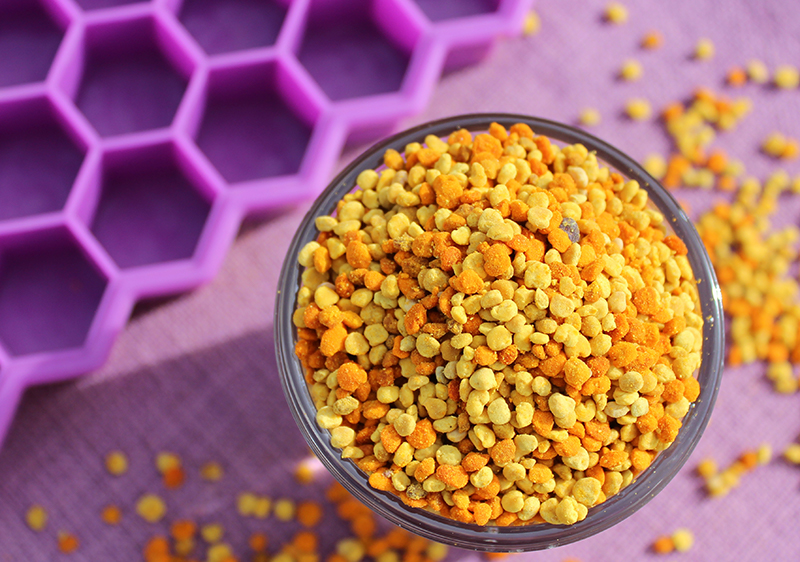
Bee pollen is created by one of the master pollinators of the earth, the honeybee. It has been collected from beehives and used by many ancient civilizations for its nutritive healing attributes and energizing influence on the body.
In the folk tradition of apitherapy, the old-time practice of using bee products as alternative medicine, a bee's pollen is considered a "gold mine" of nutrition.
Table of Contents
Intro | Nutritional Profile | List of Nutrients | About Products | Who NOT Good For? | Survival Food | Precautions | Shop
It is one of the original superfoods that became especially popular on a large scale in the 1970s and 80s when it was promoted in sports nutrition by several competing Olympic Athletes who believed it improved their performance.
Often valued as the caviar of top superfoods, it is a complete and concentrated supplemental food comprised of a full spectrum of nutrients and can be one of the best natural multivitamins available, even when taken in very small doses.
Usually, about one teaspoon (3g) is the average serving size amount. When taken once or twice daily, it can help fortify what may be lacking in many modern diets.
High-quality bee pollen is subtly sweet, slightly tart and can be consumed straight or added as a topping to various foods or blended into drinks. The tangy flavor also goes well in many citrus-based desserts.
For human use, it comes in the form of powdery soft granules, a ground powder or capsules and tablets.
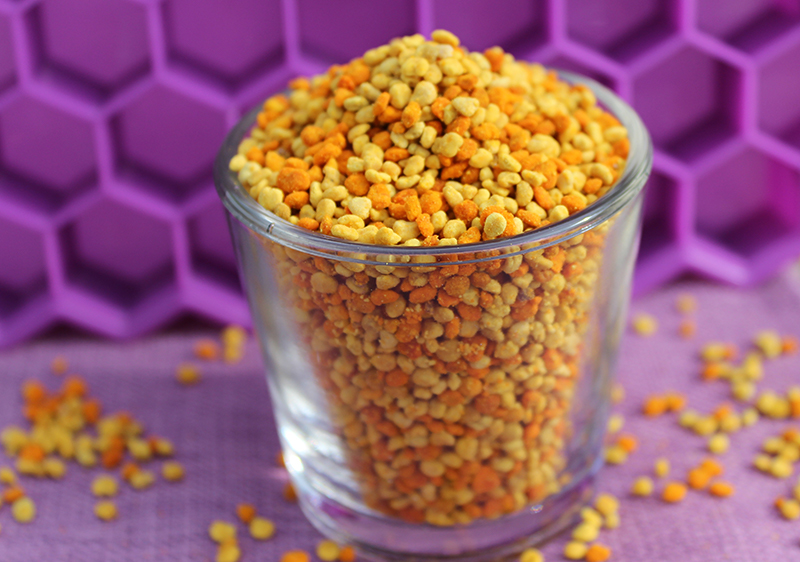
Nutritional Profile of Bee Pollen
Bee pollen is gathered from flowers by forager honeybees and later stored to provide for the primary nutritional needs of the beehive.
The tiny granules can range in color depending on the plant species. Most have yellow to orange pigment, but a small percentage are a blue-green to red-brown color.
Like other bee products such as honey, propolis and royal jelly, the precise chemical composition is contingent on the flower source and a range of other factors. Generally, however, most bee pollen is known to be comprised of the following nutrients.
List of Bee Pollen Nutrients
1) Protein
2) B Vitamins
3) Lecithin and Rutin
4) Enzymes
5) Phytosterols
6) Other Nutrients
7) Essence of Flowers
1) Protein
Bee pollen is an energizing complete protein source, containing adequate proportions of all essential amino acids and is the primary protein consumed by the honeybee hive. On average, granules can be composed of between 20-35% protein depending on the botanical source. It also holds benefits as a pre-digested food and its protein is in the form of readily absorbable amino acids.
This is one of the reasons why it is utilized as a dietary supplement in bodybuilding and sports nutrition for its influence on fostering strength and performance.
Olympic Gold Medalist for Track in the 70s, Steve Riddick, who had been consuming bee pollen for 5 years as a part of his diet said, "I train better, I run stronger. And it has so many vitamins and amino acids." (*)
2) B Vitamins
Bee pollen, also jokingly called "B" pollen, because it is packed with nearly all B vitamins aside from B12.
These B vitamins are required nourishment for feeding the "brood" or larva of the bee colony.
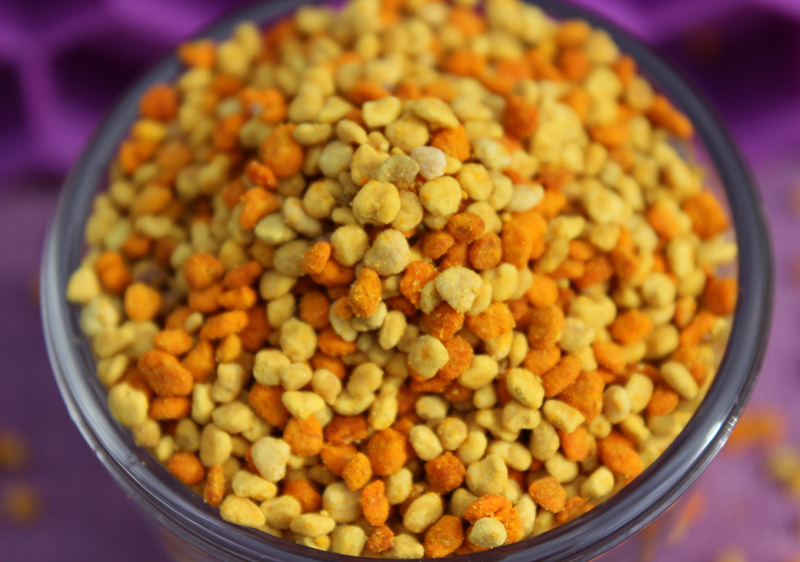
3) Lecithin and Rutin
Bee pollen is a source of lecithin known to contain inositol and choline. As a dietary source, lecithin is important for brain function and neurotransmitter activity and thus supports cognitive health.
Rutin, a citrus flavonoid glycoside of quercetin, is another nutritional component present. Rutin is a lot like quercetin and acts as an antioxidant, anti-inflammatory and antihistamine. It helps to protect the blood vessels, is beneficial for improved circulation and thus supportive to the vascular system.
4) Enzymes
Bee pollen is naturally rich in many enzymes and coenzymes including diatase, amylase, phosphatase, pectase, transferase and catalase.
Granules contain digestive enzymes also from bee saliva used to join each grain extracted together with nectar to produce the pellet-sized ball.
Often described as "nature's enzyme supplement", it can in effect work as a digestive aid to foster the breakdown of food into usable nutrients and energy. Diets higher in cooked and processed foods may benefit from enzyme-rich food sources.
5) Phytosterols
Another important nutrient in bee pollen, like pine pollen, are phytosterols. These are crucial substances and important precursors to bee insect hormones. According to beekeeping experts, pollen is the primary source of phytosterols for all honeybees and plays a vital role in "colony growth and worker longevity."
In the same regard, phytosterols when consumed by humans can provide hormone-like influences (*) and in some folk traditions are viewed as aphrodisiacs.
Likewise, bee pollen is basically the reproductive material gathered from the stamen or "reproductive organ" of the flower. It is considered nutritious for a healthy reproductive system and for building Ojas.
6) Other Nutrients
Bee pollen is a source of many minerals as well as vitamin C, vitamin E, carotenoids, nucleic acids, polysaccharides, lipids and phenols. Some of these components act as antioxidants and, in research, antimicrobial properties have been identified.
A current 2021 scientific review indicates that bee pollen has nutrition potential for a variety of conditions.
7) Essence of Flowers
We
personally love the fact that bee pollen is a wild food made from the
nectar and essence of flowers. Not just one type but many in any one
given location. The bee pollen brand you select however is very important.
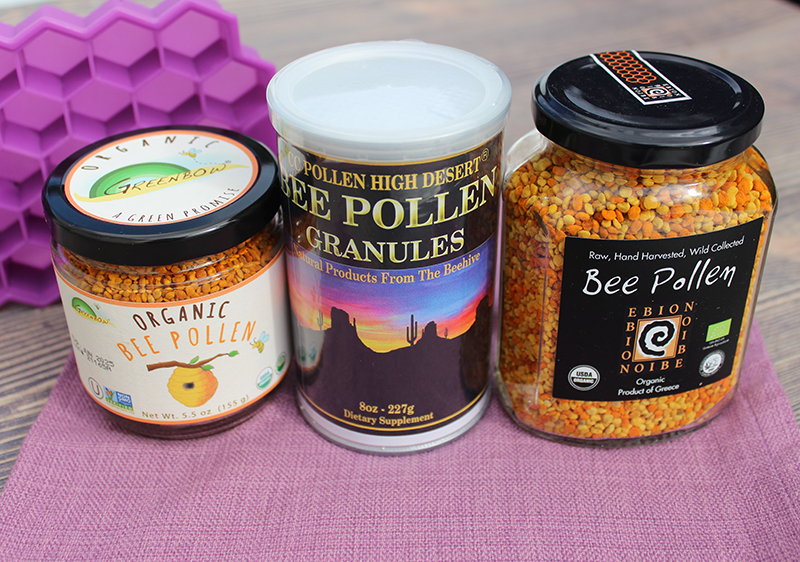
About Bee Pollen Products
While we often advocate consuming high-quality non-GMO foods, herbs and supplements, this is especially the case with bee pollen as it absorbs contaminants in the air quite easily.
It is therefore essential that you purchase from reputable brands that are organically certified and/or maintain hives that are in wild pristine locations away from major cities or pollutants.
In addition, we like to support small artisanal beekeepers who love their bees and adhere to humane beehive practices as opposed to commercial mass-produced products aiming for a large output.
Who is Bee Pollen NOT Good For?
In rare cases, bee pollen can cause mild to severe allergic reactions which may include anything from hives to anaphylaxis. This often depends, however, on the source of pollen or specific plant species such as ragweed’s, which are common allergens.
While it has been historically used in folk therapies and homeopathy in very minute amounts to lessen seasonal allergies, for those especially sensitive or asthmatic, consumption is not recommended.
In addition, bee pollen is an energetically heating food and in Ayurveda is not advocated for those with hot constitutions. Even low to high doses may cause loose stools and/or gastrointestinal irritation.
If you are new to bee pollen it is best to start out with just a grain or two and build up to larger doses to make sure it agrees with your particular body type.
Survival Food Supplement
Bee pollen is a great food to have stocked in your survival food pantry simply because it provides the body with all the essential nutrients in just a small serving.
Along with other superfoods, like spirulina and maca, it can be good to have on hand in potential emergency food shortages. Bee pollen should be refrigerated for long-term storage.
Precautions:
Never give bee pollen to infants or young children. Seek the advice of your healthcare professional before consuming bee pollen if you are pregnant, nursing, taking prescribed medications or if you have a serious health condition.
Shop Related Products (About Affiliates & Amazon Associate Paid Links)
Affiliate Disclaimer: This section contains affiliate product links. If you make a purchase through our recommended links, we receive a small commission at no additional cost to you. Thanks for the support.
Our YouTube Video


